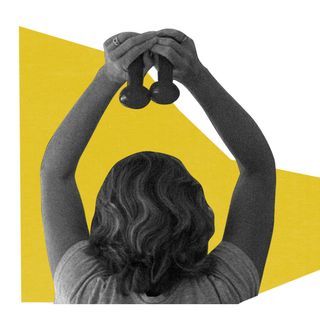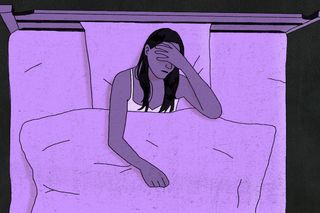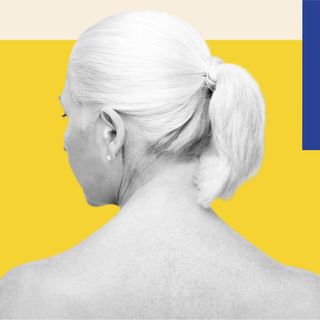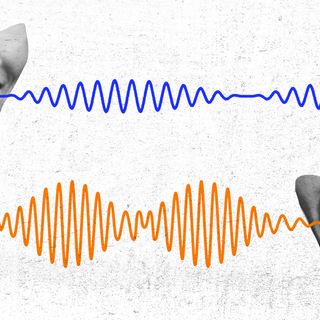
Cultural Trauma Affects PCOS Patients’ Sex Drive More Than The Condition Itself
“…because of the fat loss pills and birth control pills, body shaming, and PTSD, I never had any sex drive. I never felt attracted to people.”

“Because of the fat loss pills and birth control pills, body shaming, and PTSD, I never had any sex drive. I never felt attracted to people,” says Lasya Nadimpally, writer and mental health advocate, who has dealt with polycystic ovary syndrome (PCOS) since 2006.
PCOS is a hormonal disorder that affects up to one million women in India every year. The many symptoms of PCOS include excessive weight gain and excessive hair on the body due to an increase in androgens. These symptoms lead to a distorted body image, subsequently impacting sexual desire in women diagnosed with PCOS. Hence, one of the common symptoms associated with PCOS is that of low libido.
“A week before I’m about to get my period, I experience … a complete lack of sexual desire. All through my twenties, my weight has also fluctuated resulting in brief periods of eating disorders or excessive exercise,” says Mansi*, a 29-year-old brand consultant based in Pune.
Rather than this loss in sexual desire being a direct result of PCOS, it ties more to other factors, such as the side effects of medication. Apart from medication like Metformin, which is prescribed for PCOS treatment, patients are also often prescribed anti-depressants and anti-anxiety medication — all of which can impact a woman’s libido.
However, my conversations with sex therapists and counseling psychologists revealed that the impact of PCOS on libido goes much deeper than just side effects from medicines and relates to various cultural aspects.
The myth of “low libido”
Various experts consulted believe that the very idea of a “low libido” is flawed and often a construct that they are aiming to dismantle.
Neha Bhat, a licensed trauma therapist who works both with victims and perpetrators of sexual violence in prison systems, believes the term “low libido” is the fallout of a kind of cultural pressure and a traumatic response to an inherently imbalanced society.
She says, “Without Instagram and Facebook looking into our lives and giving us unrealistic standards, the mainstream wasn’t really thinking about low libido/high libido until somebody named it for us.”
According to Astha Ahluwalhia, a counseling psychologist based out of Gurgaon, a culture that encourages “more” sex and less mindful expression of sexual desire have contributed to the idea of “low sex drive” as a “condition” somebody might suffer from, when there are usually a plethora of psychosexual factors at play.
“Having a low libido is not a disorder. It is only a concern if there’s a significant shift in somebody’s adult life. People differ in the degree of sexual appetite and it also changes during the course of a relationship. A lot of people assume there’s something known as sexual equivalency – that most people have equal sexual desire, which is not an appropriate assumption,” she says.
Michelle Faye Perreira, a psychologist based in Mumbai, agrees with this premise. “For PCOS patients not on medication, a phase of decreased sexual drive isn’t a cause for alarm. If anything, it’s your body trying to tell you something,” she says.
Related on The Swaddle:
Researchers Call for Doctors to Treat PCOS, Mood Disorders Holistically
The cycle of guilt and shame
“We’re brought up in a culture where one of the most primal aspects of existence, sex, isn’t spoken about openly, thus leading to internalized guilt and shame associated with somebody choosing to have or not having sex,” says Anjendra Targe, a sex therapist based in Pune.
“Especially with fluctuating hormones in women with PCOS, [guilt] can be a common occurrence. They’re not able to let go, they have trouble with their partner which creates further doubt and shame. So, they get stuck in this vicious cycle,” he says.
On the other end of the spectrum, societal pressure to be having sex also leads to a similar cycle of guilt. An overarching cultural pressure mandates that people must have more sex simply since they’re sex-positive or want to be seen as “open,” but the reality is that sexual desire sits on a spectrum and fluctuates through a person’s lifetime. Bhat believes that even if you have sex once a year, you’re still sex-positive. Also, low sexual desire for a period of time doesn’t mean that the person will feel the same for the rest of their life or that there’s something inherently wrong with them. So, PCOS or not, it’s important to first acknowledge that.
Mental health and sexual health
For women with PCOS, believing these narratives around “low libido” and sexual “openness” lead to a compounded cycle of stress, which aggravates existing symptoms of PCOS.
Further, it is well established that menstrual health affects mental well-being — a major contributor to how we view ourselves as sexual beings. “The more I thought about my body, the less I found myself being attracted to my partner or wanting to have sex,” says Mansi.
“More often than not, when we talk about PCOS, concern over depression and anxiety follows. Hormones like estrogen and progesterone impact our serotonin level which is responsible for our mood. If I do see that PCOS is interfering with a client’s day-to-day sexual life, I work in tandem with their gynecologist and endocrinologist to ensure that they’re taken care of psychologically and physiologically while assuring them whatever amount of sexual desire they experience is normal,” explains Ahluwalhia.
Working through it holistically
There are several different approaches to working through the psychological fallout of PCOS, but there’s one thread running through all of them — challenging existing narratives about body image and libido in itself.
“That’s why you’d often find that techniques of yoga, breathwork, meditation, and body scans that specifically work with anxiety can enhance a person’s relationship to their body, which in turn allows them to register and express their sexual desire,” explains Michelle.
Lasya explains that it was only after fixing her relationship with her body is when her PCOS became more manageable. Only then she “started having sex, masturbating or watching porn.”
Anjendra Targe believes in having an integrated approach that unpacks his client’s psychosexual relationships, starting from childhood, and not just treating PCOS in isolation. “I encourage [patients] to operate from the underlying idea that sex is healthy and that they deserve sex, which in turn improves their levels of stress and cognitive wellbeing, leading to an automatic reduction in PCOS symptoms.”
PCOS and psycho-sexual well-being have a complicated reciprocal relationship where one informs the other. A holistic approach to tackling any issues begins with dispelling myths about the kind of libido one must possess and letting go of the shame that comes with expressing sexual desire — or the lack of it — rather than blaming the condition or the medication alone.
*Names have been changed upon request.
Alina Gufran is a screenwriter, filmmaker and features writer based out of Mumbai. Third-culture kid.
Related


All You Need to Know About Albinism
